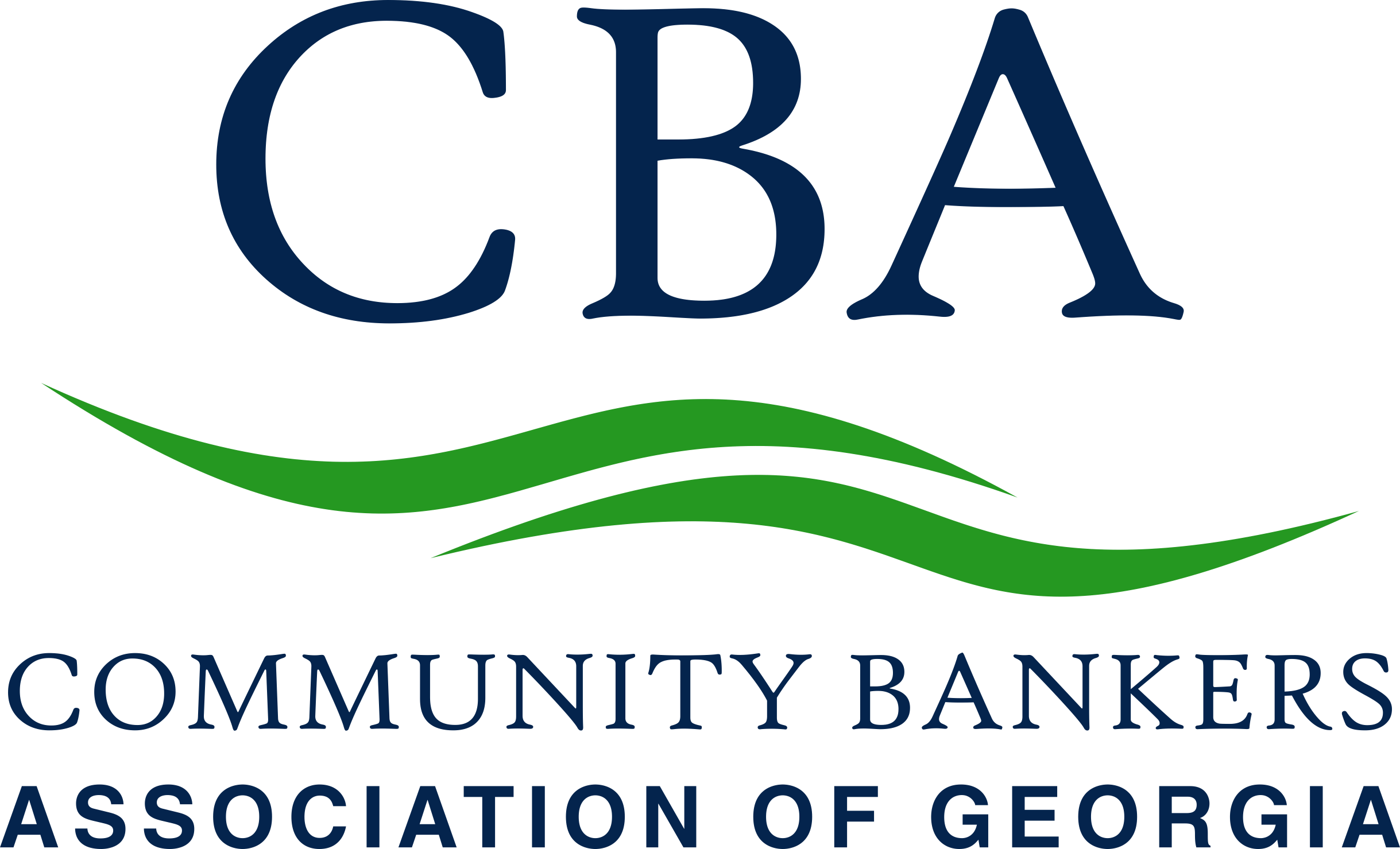Town Hall Talks are a multi-location Grassroots alternative to a Day at the Dome for you to meet your legislators in person. These...
Read PostAdvocacy Update
The Latest Community Banking Advocacy News
Town Hall Talks are a multi-location Grassroots alternative to a Day at the Dome for you to meet your legislators in person. These...
Read PostPURCHASE YOUR TICKET, USING THE LINKS BELOW:Just One Ticket? We’ve Got You Covered! Click here.Bundle & Save: 6 Tickets Only $50!...
Read PostWe’re heading to the ballpark for a night of baseball and community spirit as CBA Day at the Braves is officially sold out! On Saturday,...
Read PostMark Your Calendar: July 15 – Dalton July 23 – Tifton CBA’s Town Hall Talks bring legislative...
Read PostCBA hosted the 2025 Topgolf Showdown last week at Topgolf in Buford, bringing together a nice turnout from community bankers and partners....
Read PostPursuant to the provisions of the Georgia Administrative Procedure Act, O.C.G.A. § 50-13-1 et seq., and by the authority of O.C.G.A....
Read PostGeorgia bankers make their voices heard in Washington, D.C. “Our group lobbied for community bank legislative priorities. We discussed...
Read Post“Given our advocacy efforts on the issue, it was an honor to watch Governor Kemp sign HB 586 into law,” said John McNair, President...
Read PostGet ready to swing into fun! CBA’s Top Golf Showdown returns Wednesday, May 22 in Buford, and you won’t want to miss it. Whether...
Read PostAt CBA, we must constantly build and renew relationships with legislators that understand and support community banking. Thank you to the...
Read Post

